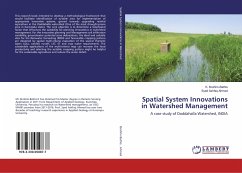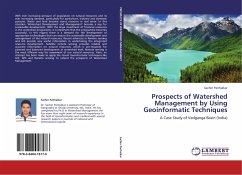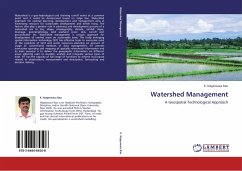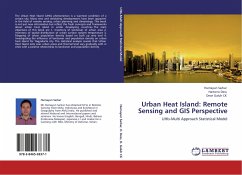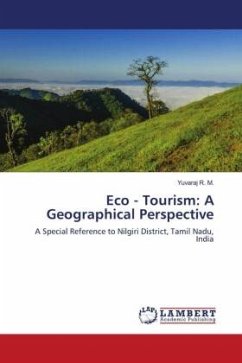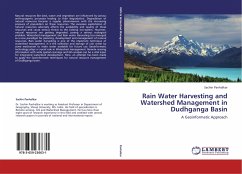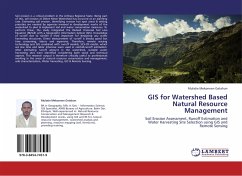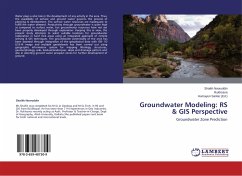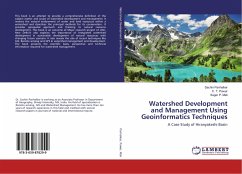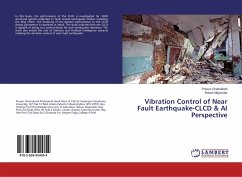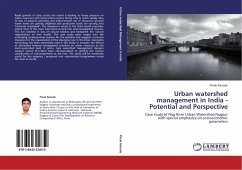
Urban watershed management in India - Potential and Perspective
Case study of Nag River Urban Watershed,Nagpur with special emphasize on socioeconomic parameters
Versandkostenfrei!
Versandfertig in 6-10 Tagen
52,99 €
inkl. MwSt.

PAYBACK Punkte
26 °P sammeln!
Rapid growth of cities across the world is leading to heavy pressure on water resources with many urban centers facing crisis in water supply. Due to lack of advance planning and indiscriminate use of resources, ground water levels are getting depleted and productive lands are turning into "Concrete wasteland". The situation is worst in the third world countries, where most of the rivers have been turned into sewers/neglected courses. This has resulted in loss of natural habitat and hampered the natural regeneration of river health. The case study gives insight into the underlying socioeconomi...
Rapid growth of cities across the world is leading to heavy pressure on water resources with many urban centers facing crisis in water supply. Due to lack of advance planning and indiscriminate use of resources, ground water levels are getting depleted and productive lands are turning into "Concrete wasteland". The situation is worst in the third world countries, where most of the rivers have been turned into sewers/neglected courses. This has resulted in loss of natural habitat and hampered the natural regeneration of river health. The case study gives insight into the underlying socioeconomic reasons for the problem and suggests corrective measures for the rejuvenation of the decaying river in the cities. Geomatics technology has been extensively used in this study to evaluate the effects of alternative landuse management practices on water resources at the micro-watershed level. A proto- type watershed management decision support system (D.S.S)has been conceptualized to identify the relative contribution of sub-watersheds to the river. The study will be immensely useful for the ongoing / proposed river rejuvenation programmes across the cities of world.



